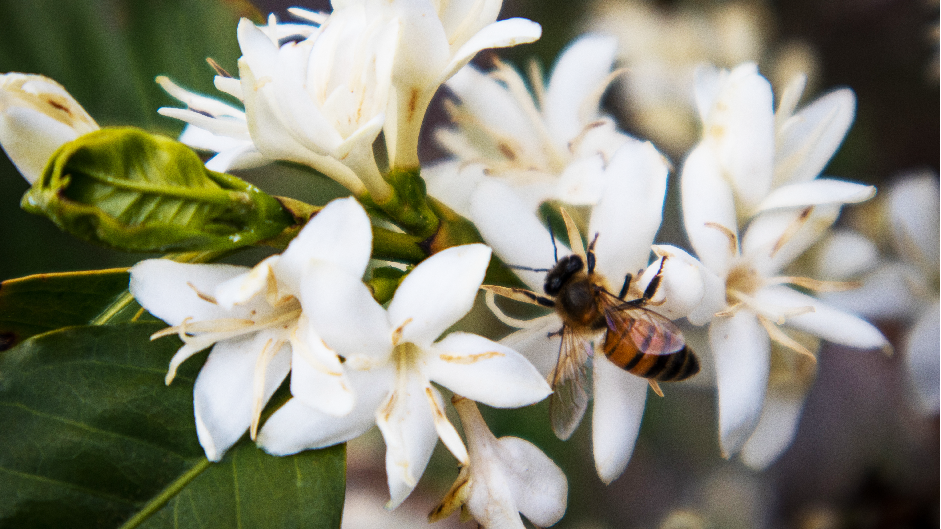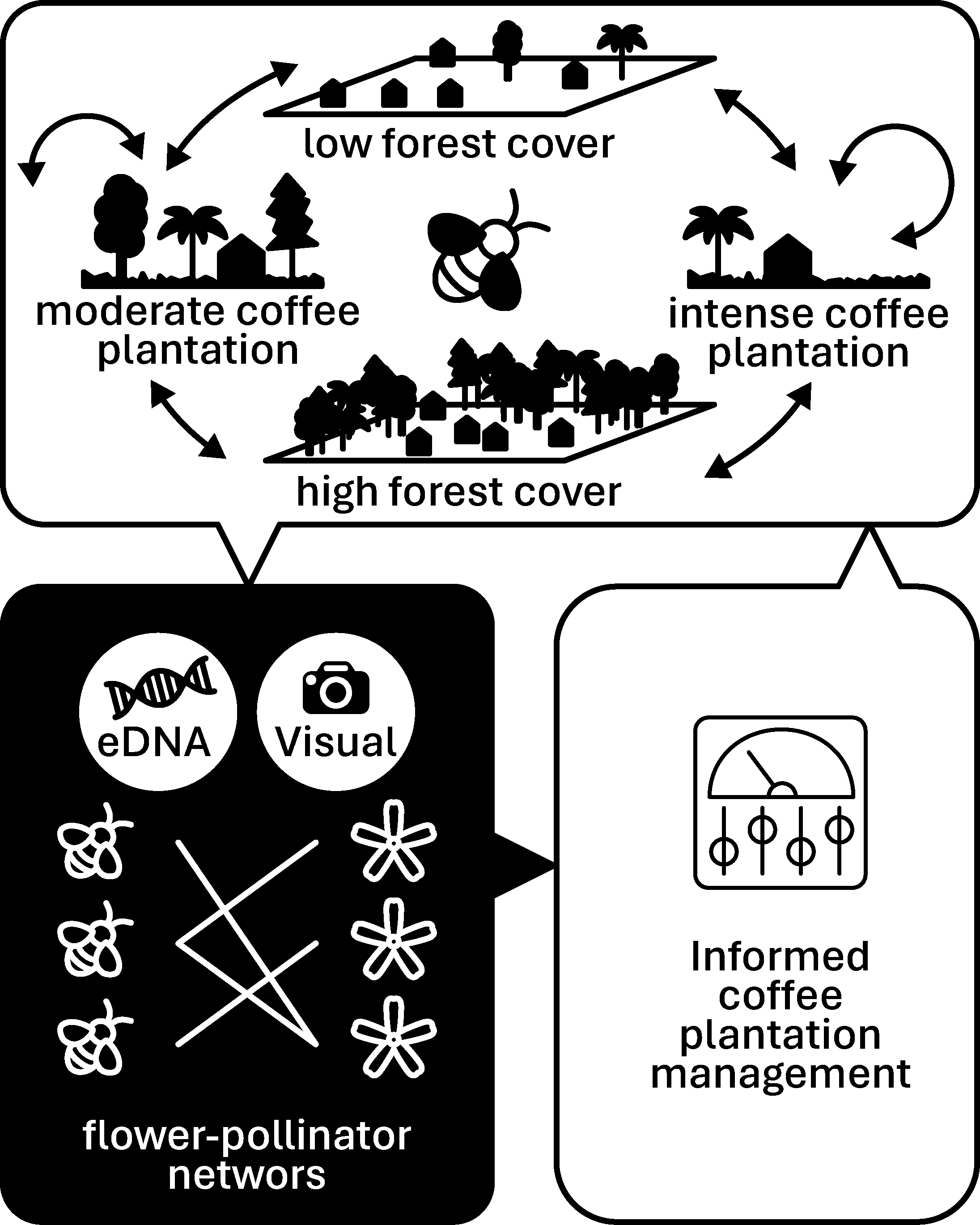POLNET – Cross-scale plant-pollinator network dynamics
Tree diversity in Indian coffee agroforests is good for pollinators, and benefits fruit production of both coffee and native trees. Agroforest intensification reduces tree cover, and is likely to affect small bees with small foraging ranges, while large bees might respond more to forest loss across the landscape. Understanding how bees respond to local and landscape structure can improve agroforest and landscape management, and ensure bees continue to pollinate coffee and native trees.

Using observations, pollen DNA barcoding, and eDNA, we evaluate how coffee agroforest intensification affects pollination processes. We relate the complexity of plant-pollinator interaction networks to local and landscape land-use changes, especially in the light of differing responses among bee species. We work with farmers to explore how agroforests might be managed to ensure that plant-pollinator interactions benefitting coffee and native plants can be maintained over the long term.

Policy and management relevance
Managing trees on farms and in landscapes can support bee diversity, coffee production, and native plant biodiversity.

POLNET – Cross-scale plant-pollinator network dynamics is funded by the Swiss National Science Foundation (2024-2028), and is in collaboration with Ponnampet College of Forestry.
Researchers
Rama Harihara
PHD student
Go to profile
Daisy Furrokh
PHD student
Go to profile